Navigating the City of Angels: A Comprehensive Guide to Los Angeles Maps
Related Articles: Navigating the City of Angels: A Comprehensive Guide to Los Angeles Maps
Introduction
With enthusiasm, let’s navigate through the intriguing topic related to Navigating the City of Angels: A Comprehensive Guide to Los Angeles Maps. Let’s weave interesting information and offer fresh perspectives to the readers.
Table of Content
Navigating the City of Angels: A Comprehensive Guide to Los Angeles Maps
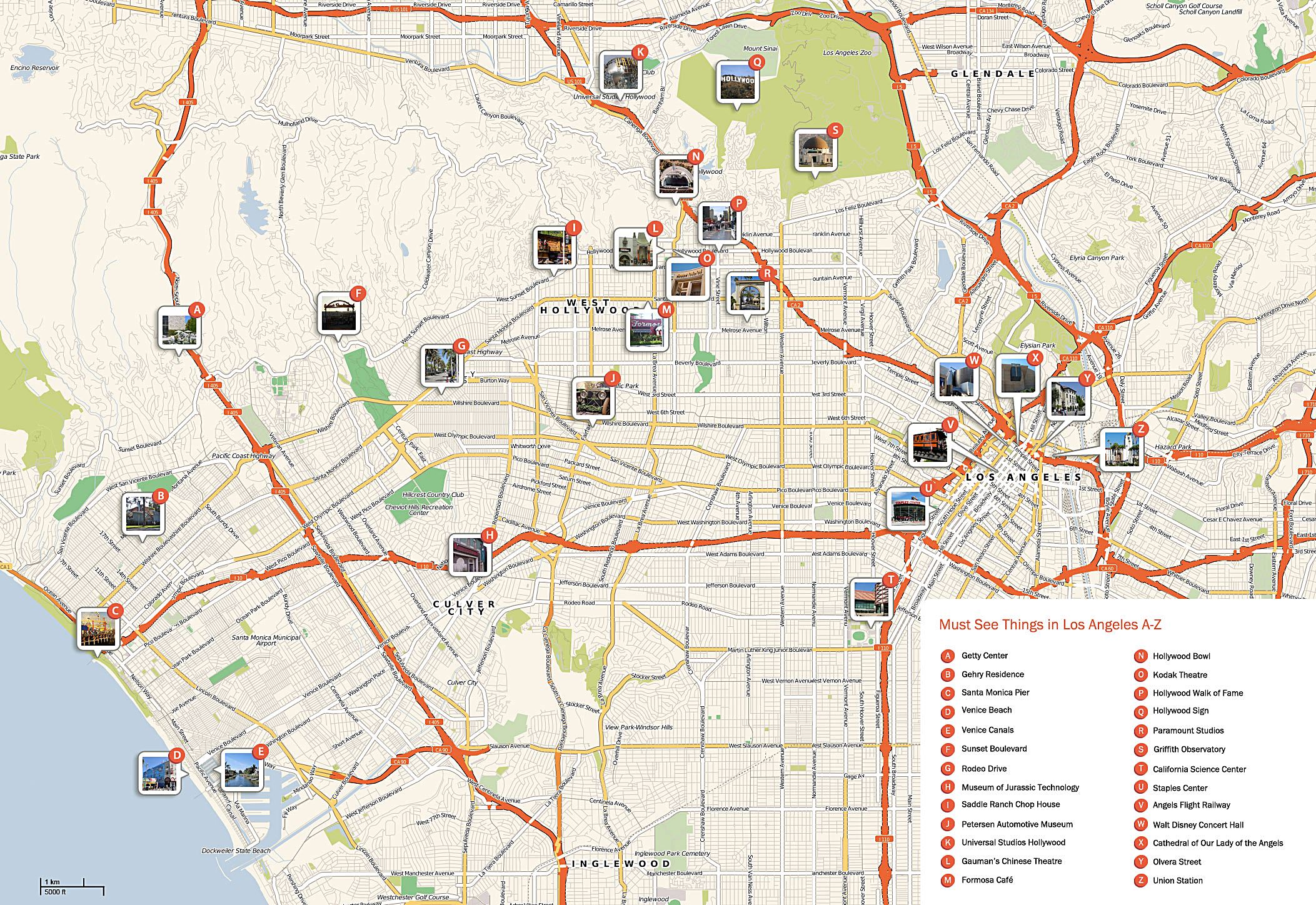
Los Angeles, a sprawling metropolis known for its diverse neighborhoods, iconic landmarks, and endless entertainment options, can be a daunting city to navigate. Yet, understanding its layout and intricacies is essential for anyone seeking to explore its vibrant tapestry. This article delves into the world of Los Angeles maps, exploring their diverse forms, functionalities, and the invaluable role they play in unlocking the city’s secrets.
Unveiling the City’s Layers: Types of Los Angeles Maps
Navigating Los Angeles effectively requires understanding the city’s unique structure. Its vast expanse, encompassing diverse neighborhoods and sprawling suburbs, necessitates a range of maps designed to cater to specific needs. Here’s a breakdown of the most common types:
- Street Maps: The foundation of any exploration, street maps provide a detailed overview of the city’s road network. They are invaluable for driving, walking, or cycling, offering a visual representation of streets, intersections, and key landmarks.
- Neighborhood Maps: Focusing on specific areas, neighborhood maps provide a more intimate view of local streets, parks, businesses, and points of interest. They are ideal for discovering hidden gems within a particular community.
- Transit Maps: Essential for public transportation users, transit maps showcase bus routes, subway lines, and train schedules. They provide a clear understanding of the city’s interconnected transportation network.
- Tourist Maps: Catering to visitors, tourist maps highlight major attractions, hotels, restaurants, and cultural landmarks. They are designed to provide a concise overview of the city’s key destinations.
- Historical Maps: These maps offer a glimpse into the city’s past, showcasing its evolution and development over time. They reveal the historical context of neighborhoods, landmarks, and infrastructure, offering a unique perspective on Los Angeles’s growth.
Beyond the Paper: Digital Mapping Tools
While traditional paper maps remain valuable, the digital age has revolutionized the way we navigate. Online platforms and mobile apps offer a wealth of interactive mapping tools that enhance the experience:
- Google Maps: A ubiquitous tool, Google Maps provides real-time traffic updates, street view imagery, and detailed information about businesses, attractions, and public transportation.
- Apple Maps: Apple’s mapping platform offers a user-friendly interface, integrated with Apple devices, and features detailed street maps, 3D views, and real-time traffic information.
- Waze: Designed for drivers, Waze utilizes crowdsourced data to provide real-time traffic updates, accident reports, and alternative routes, helping users avoid congestion and save time.
- Citymapper: This app focuses on public transportation, offering comprehensive information on bus, subway, and train routes, including real-time schedules and journey planning.
Decoding the City: Understanding Los Angeles’s Spatial Dynamics
Understanding the city’s spatial organization is crucial for effective navigation. Here are some key factors to consider:
- The Grid System: Much of Los Angeles follows a grid pattern, with streets running north-south and avenues running east-west. This structure provides a basic framework for navigating the city.
- Neighborhoods: Los Angeles is a city of diverse neighborhoods, each with its unique character and identity. Understanding the boundaries and characteristics of these neighborhoods is essential for exploring the city’s cultural tapestry.
- Freeways: The extensive freeway system connects different parts of the city, but can also be a source of traffic congestion. Understanding the major freeways and their routes is essential for efficient driving.
The Importance of Local Knowledge
While maps provide a comprehensive overview, local knowledge can greatly enhance the navigation experience. Engaging with locals, exploring neighborhood guides, and utilizing online forums can offer valuable insights into hidden gems, local customs, and navigating the city’s unique quirks.
FAQs: Addressing Common Questions about Los Angeles Maps
Q: What is the best way to navigate Los Angeles for a first-time visitor?
A: For first-time visitors, a combination of tourist maps, digital mapping apps, and local recommendations is ideal. Tourist maps provide an overview of key attractions, while digital apps offer real-time information and navigation assistance. Engaging with local guides, tour operators, or residents can provide valuable insights into hidden gems and local experiences.
Q: How can I avoid traffic congestion in Los Angeles?
A: Utilizing real-time traffic information is crucial. Apps like Waze and Google Maps provide up-to-date traffic updates and suggest alternative routes to avoid congestion. Planning trips during off-peak hours can also minimize travel time.
Q: What are the best resources for exploring specific neighborhoods in Los Angeles?
A: Neighborhood maps, online forums, and local blogs provide valuable insights into specific areas. Online resources often feature detailed information about local businesses, attractions, and community events. Engaging with residents and exploring local guides can offer firsthand knowledge of neighborhood quirks and hidden gems.
Tips for Effective Navigation
- Plan your route: Before embarking on your journey, plan your route using a map or digital navigation app. This will save time and avoid unnecessary detours.
- Utilize landmarks: Identify prominent landmarks along your route to help you stay oriented. This is particularly helpful when navigating unfamiliar areas.
- Be aware of traffic patterns: Los Angeles experiences heavy traffic congestion, especially during peak hours. Utilize real-time traffic information to plan your routes accordingly.
- Consider public transportation: For shorter distances, consider utilizing public transportation. The city’s extensive bus and subway network can be a convenient and cost-effective way to navigate.
- Explore beyond the tourist hotspots: Venture beyond the well-trodden tourist paths to discover hidden gems and authentic experiences.
Conclusion: Unlocking the City’s Secrets
Los Angeles maps, in their diverse forms, are essential tools for unlocking the city’s secrets. They provide a framework for navigating its sprawling landscape, understanding its diverse neighborhoods, and discovering its hidden gems. Whether you’re a seasoned traveler or a first-time visitor, embracing the power of maps will enhance your exploration of the City of Angels and allow you to experience its vibrant tapestry in all its glory.
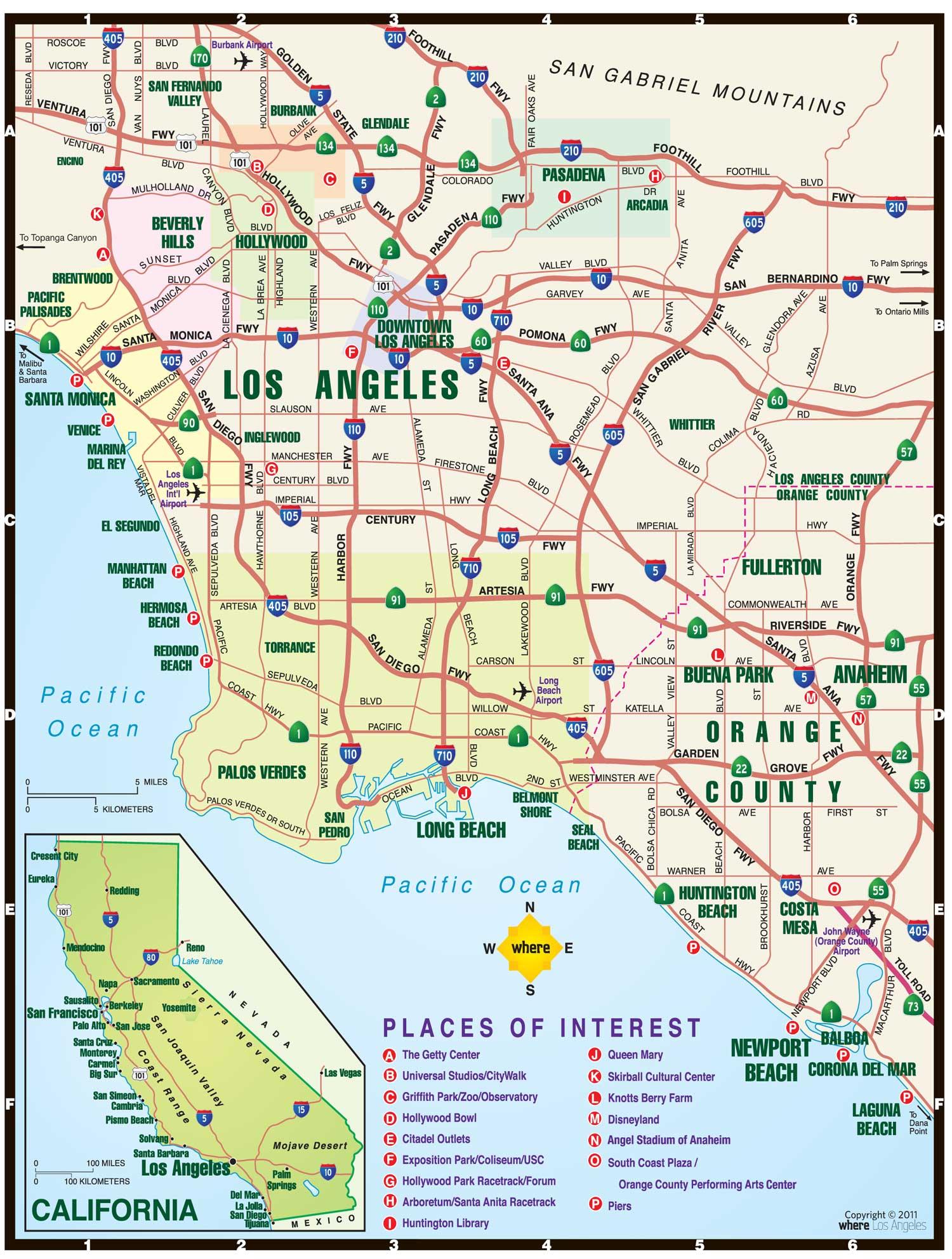


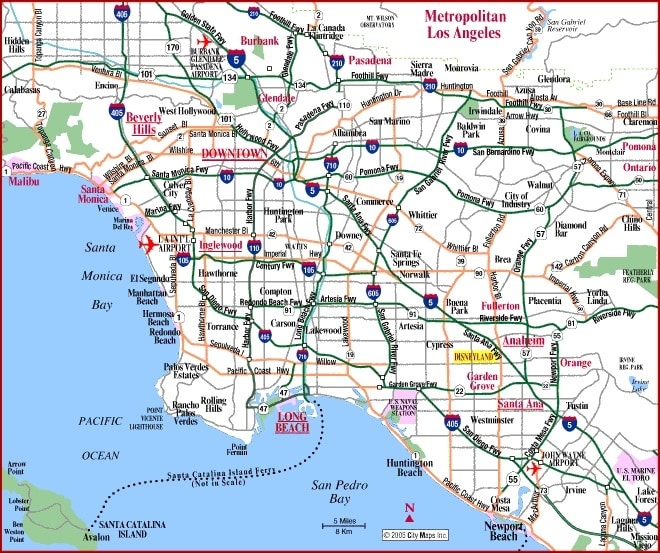
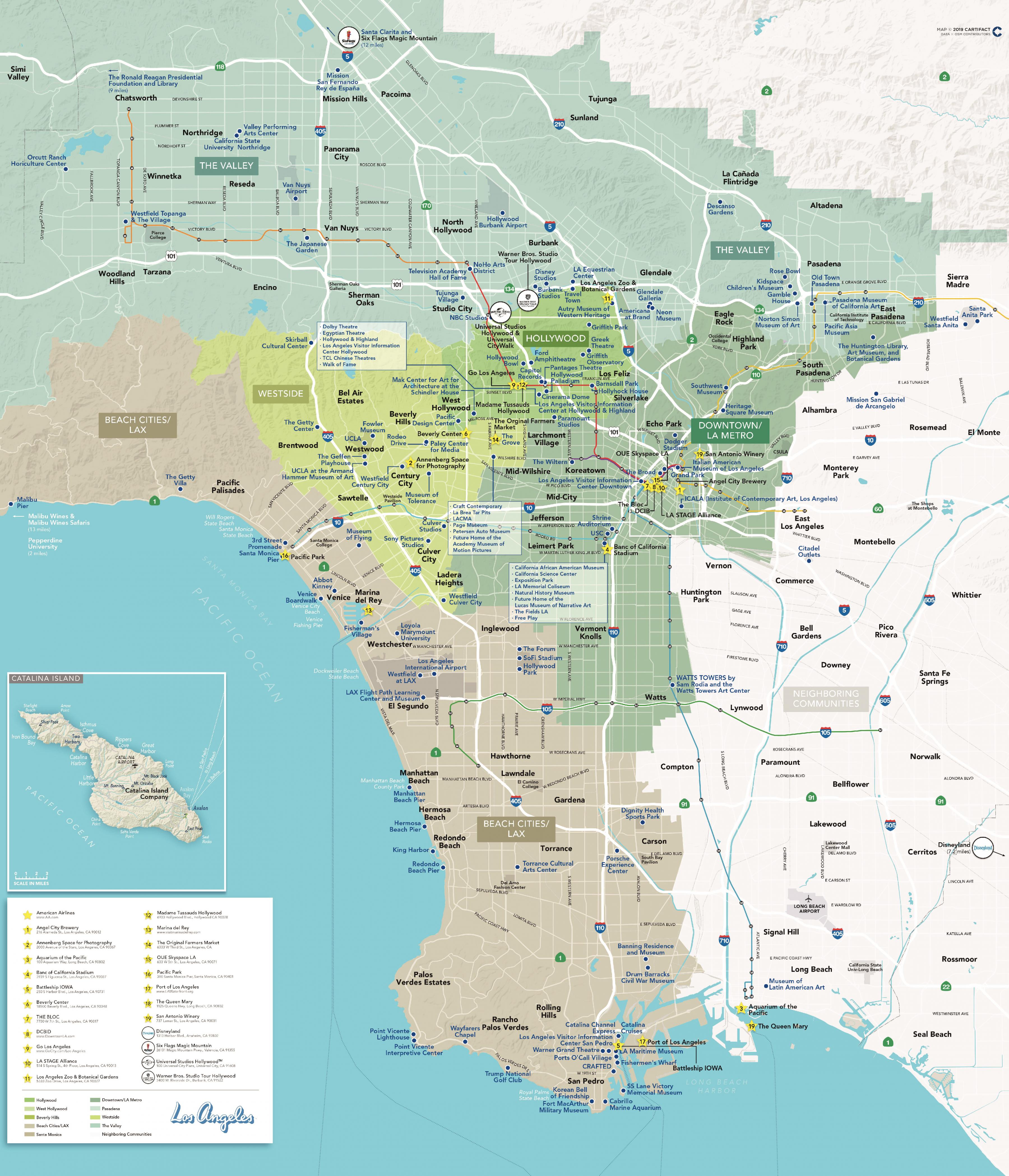
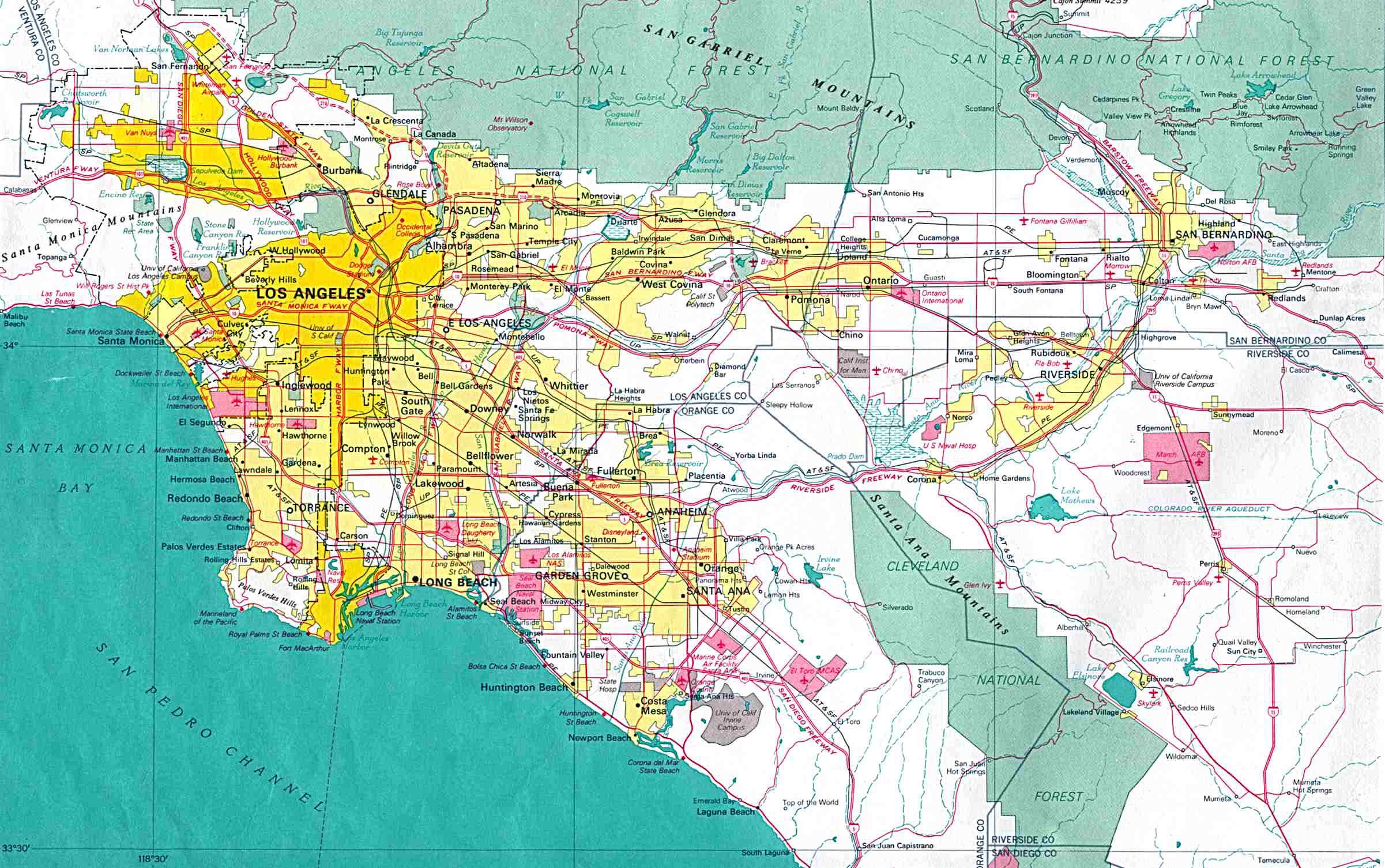
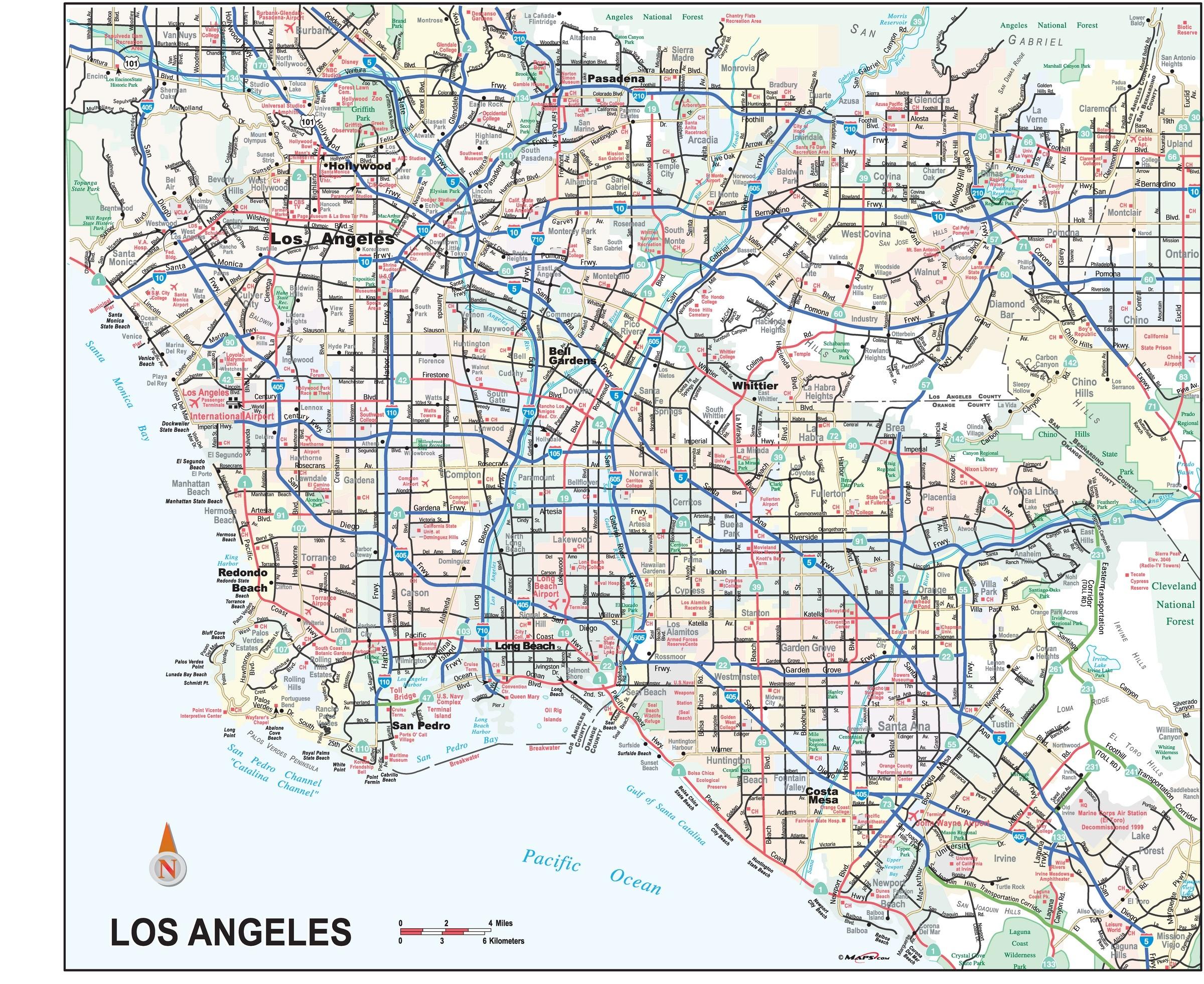
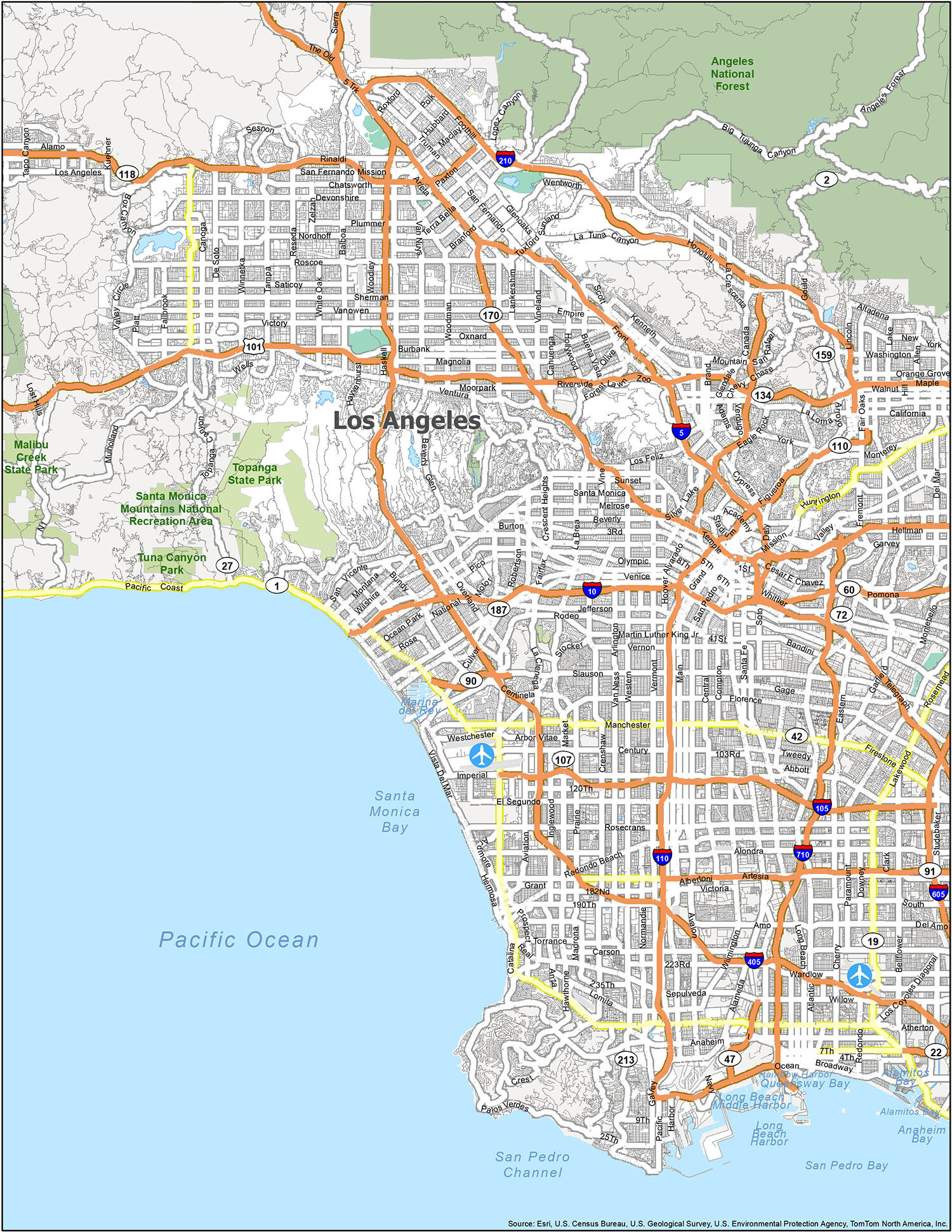
Closure
Thus, we hope this article has provided valuable insights into Navigating the City of Angels: A Comprehensive Guide to Los Angeles Maps. We hope you find this article informative and beneficial. See you in our next article!